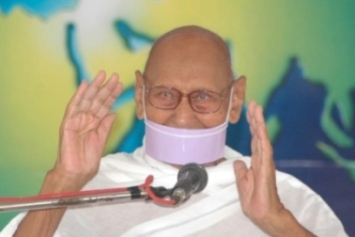Acharya Shri Mahapragya was the tenth head of the Svetambar Terapanth order of Jainism. Mahapragya was a saint, yogi, spiritual leader, philosopher, author, orator, and poet.He began his life of religious reflection and development as a Jain monk at the age of ten. Mahapragya played a major role in Anuvrat movement launched by his Guru Acharya Tulsi in 1949, and became the acknowledged leader of the movement in 1995. Acharya Mahapragya formulated the well organized Preksha meditation system in the 1970s, and developed the "Science of Living" education system which is a practical approach for the balanced development of a student and his character building.He traversed more than 100,000 km on foot covering more than 10,000 villages reaching out to the masses spreading the message of harmony and peace. He walked across the length and breadth of India From Kutch District in Gujarat to Kolkata and from Punjab to Kanyakumari. Mahapragya undertook this travel under the leadership of Acharya Tulsi and later with himself being the leader. During these travels, he addressed thousands of public meetings. Mahapragya, an apostle of nonviolence, launched the Ahimsa Yatra movement in 2001 which continued until 2009 to promote non-violence and harmony.
Wikipedia
✵
14. June 1920 – 9. May 2010
